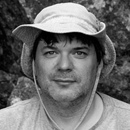Advisory Board and Editors Evolutionary Studies

Dominik Wodarz
Dominik Wodarz is Professor in the Department of Ecology and Evolutionary Biology at University of California, Irvine. The subject area of his research is theoretical / mathematical biology, with emphasis on infectious disease, the immune system, cancer, and evolutionary dynamics. His studied Biology at Imperial College, London, and obtained his PhD from the University of Oxford.

Yuri I. Wolf
Lead Scientist, Koonin Group at the Computational Biology Branch, National Center for Biotechnology Information, National Library of Medicine, National Institutes of Health (Bethesda, Maryland).

L. LaReesa Wolfenbarger
Dr. Wolfenbarger conducts research on the ecology and conservation of grassland species and communities in the agricultural landscape of the Great Plains. She also devotes research time to synthesizing information for policymakers and resource managers so that scientific results are readily available for decision makers.

Huiting Wu
Dr. Huiting Wu is a lecturer in the School of Geosciences and Surveying Engineering at China University of Mining and Technology (Beijing) in Beijing, China.
Dr. Wu's research focus is on taxonomy, palaeoecology and morphology of brachiopod, mass extinction and biotic recovery. She is also interested in ecology and morphological changes of brachiopod in modern ocean, bivalves and ammonoids.
Dr. Wu is a graduate of China University of Geosciences (Wuhan). Between 2016-2017, she was a visiting scholar in Deakin University. Between 2018-2010, she was a post-doctors fellow in the Peking University.

Mark T Young
’m a Scottish evolutionary biologist and vertebrate palaeontologist. My research focus is on major evolutionary transitions: understanding both how and why the vertebrate body-plan radically transforms when adapting to new niches. My interdisciplinary approach including biomechanics, comparative anatomy, neuroanatomy, nomenclature, philosophy of biology, phylogenetics, and systematics/taxonomy.
My areas of research are:
(1) The land-to-sea transition of fossil marine crocodylomorphs. This focuses on the biology of Thalattosuchia (marine crocs that evolved flippers and a tail fin during the Age of Dinosaurs). My research includes understanding their endocranial anatomy, sensory systems, evolutionary relationships, and morphofunctional diversity. Finally, what do thalattosuchians tell us about common evolutionary pathways seen in secondarily aquatic vertebrates?
(2) The air-to-land transition within Columbidae (pigeons and doves). This focuses on the biology of the Dodo (Raphus cucullatus) and the Solitaire (Pezophaps solitaria). My research includes understanding their skeletal anatomy, locomotory biomechanics, and evolutionary relationships. Finally, what does the Dodo tell us about common evolutionary pathways seen in secondarily flightless birds.
(3) Philosophy of biology. The goal of the sciences is to cumulatively gather descriptive and ultimately causal understanding of objects and events. My research includes ensuring that my work is compatible with the goal of scientific inquiry, and to promote a view of biology and biological research that encapsulates biological theory, applied technological innovation, with a philosophical underpinning.
(4) Promotion of best practice in descriptive biology and zoological nomenclature. Given the current ‘age of extinctions’ we are living through and the dire shortage of trained taxonomists, there is a greater need than ever to ensure that taxonomic and descriptive research meets best practice and is compatible with the goal of scientific inquiry.
I am an ICZN Commissioner, a Fellow of the Linnean Society of London, and a member of the Royal Society of Biology (RSB). I have Chartered Biologist status, registered with the RSB. I am a member of two IUCN Species Survival Commission groups: the Crocodile Specialist Group, and the Pigeon & Dove Specialist Group. I am the editor-in-chief of Historical Biology, and also an academic editor for PeerJ and PeerJ Open Advances in Zoology.

Dapeng Zhang
Assistant Professor in Bioinformatics, St. Louis University.

Dagmara Żyła
I am a Coleoptera Curator and a Head of Coleoptera Section at the Museum of Nature Hamburg. I work on phylogenomics, systematics, and evolution of rove beetles (Staphylinidae).

